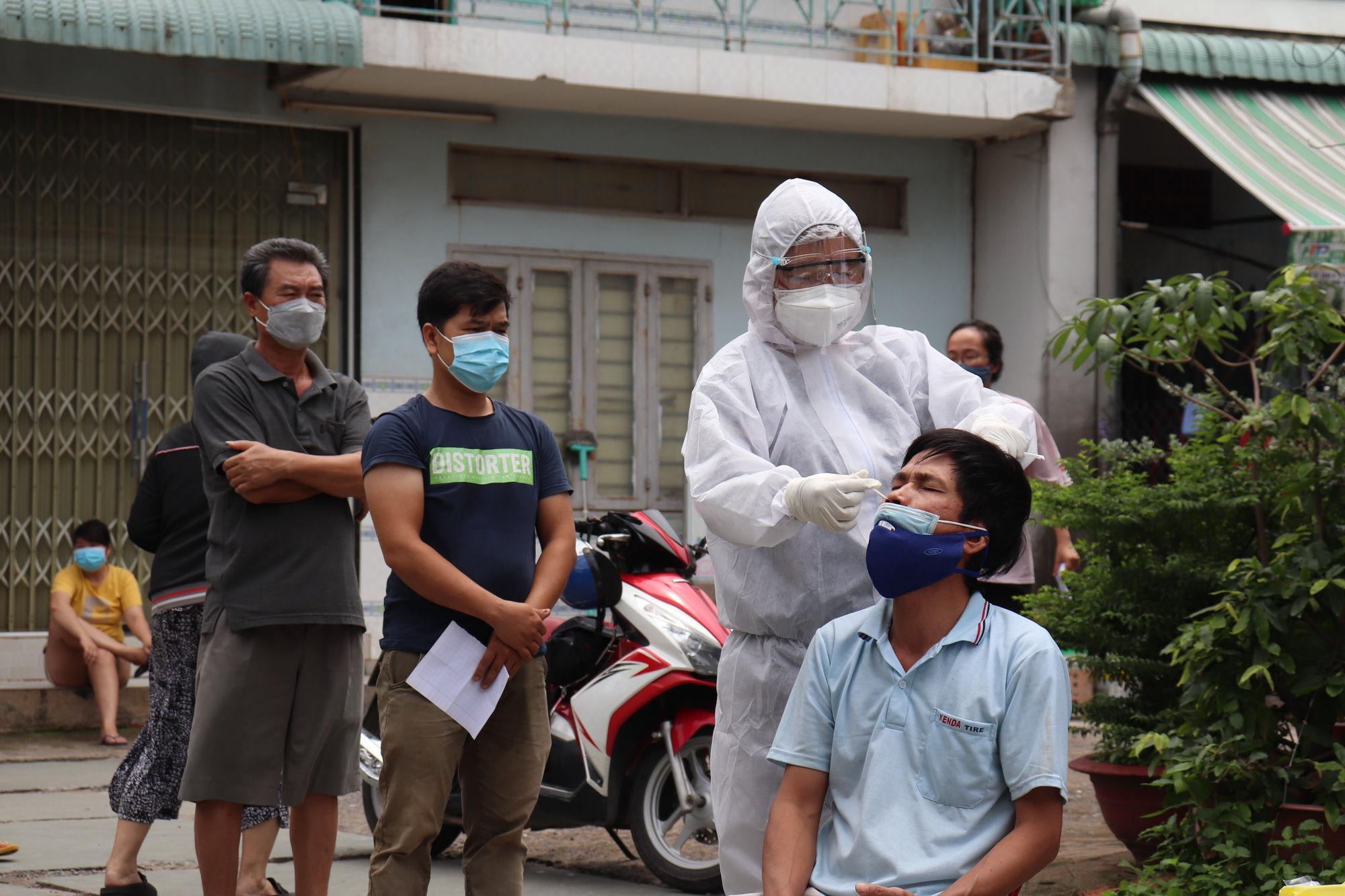The People’s Committee of Dong Nai Province in southern Vietnam has given instructions to enterprises that have wished to end the implementation of two operation models required for companies in coronavirus-hit areas after discovering infections among their workers.
Authorities have requested companies in Vietnam to follow either the ‘three-on-the-spot’ or ‘one road, two places’ model in order to maintain operations during the pandemic prevention time.
In the first model, enterprises and employees must conduct production, have meals, and rest after work at the same place.
Enterprises and employees following the second protocol must arrange isolated production and accommodations at two separate locations, connected by a single transport route for workers to commute every day.
After one month of applying the first scheme, many enterprises and employees in Dong Nai have sought approval to cancel it, according to the provincial Department of Labor, War Invalids, and Social Affairs and the Dong Nai Industrial Zones Authority (DIZA).
The People’s Committee of Dong Nai issued a document in response to them on Thursday night.
Accordingly, enterprises are responsible for testing all employees for COVID-19 after receiving the approvals for the cancelation from the Department of Labor, War Invalids, and Social Affairs, DIZA, and the district-level People’s Committees.
Employees are only allowed to leave enterprises when they have a negative test result within three days and are received by staff of the People’s Committees of their home districts.
Further, to drop the ‘stay-at-work’ mechanism, enterprises must ensure that all of their employees test negative for the coronavirus.
If an employee tests positive for the virus, the enterprise must not let them leave its facility without permission.
Enterprises shall report test results to the People’s Committees of the districts or cities where their employees reside.
Chairman of Dong Nai Province Cao Tien Dung insisted that enterprises provide referrals, COVID-19 test results, and reception letters from the district-level People’s Committees for each employee and guide them to prepare necessary documents to pass through medical checkpoints before leaving the companies.
Besides, the employers will take full responsibilities before the law for any staff returning home without complying with the aforementioned regulations or allowing them to leave their facilities without authorities’ permission.
They may even face legal proceedings if the employees spread the disease in their residential areas.
Approximately 136,000 employees have practiced the two said protocols at more than 1,150 enterprises in Dong Nai, according to DIZA’s statistics.
However, many of them have contracted the coronavirus and formed large clusters of infections at the enterprises, of which two have been suspended from operating as the situation worsened.
Like us on Facebook or follow us on Twitter to get the latest news about Vietnam!
















































